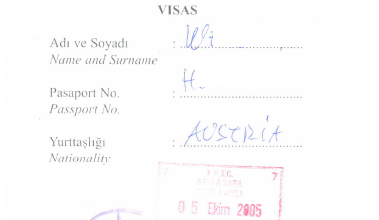Each And Everything You Need To Know About Travel On Retirement Budget

Imagining the lifestyle you want to live in retirement is one of the most enjoyable aspects of retirement planning. The majority of retirees prefer to travel extensively during their retirement years.
Cost is one obstacle that must be overcome if those dreams are to come true. An international travel agency network reports that the average retiree spends $11,077 on travel each year. This guide is all about Travel On Retirement Budget.
Some tips for travel on a retirement budget
· Setting a budget for travel.
Estimate the cost of your trip by determining where you’d like to go and researching the location. Expenses such as airfare, lodging, food, and attractions should be considered. Set aside an amount in a separate saving account for travel expenses based on how much disposable income you can realistically save.
· Make plans in advance.
Taking advantage of the best rates for your specific destination, dates, and itinerary requires booking early. Keep an eye out for price drops after you’ve made your reservation. Depending on the price, you might be able to get a refund.
· Be flexible.
Alternatively, you can save money by being flexible with dates and destinations. If you want to go to the beach, your dollars will go further in Florida. Instead of flying on weekends, think about flying during the week. Spend the money you’ve saved on an upgrade, an activity, or an extended trip.
· Stay away from travel during peak times.
As airfare and hotel rates fluctuate based on demand, you’ll be likely to pay less if you avoid traveling during peak tourist season. Rather than going to Disney World in July or Times Square in December, visit Europe in the spring or New Orleans in the fall. The cost of travel will be lower, but there will be fewer crowds and shorter lines for significant attractions.
· Control transportation costs.
Public transportation options are available in several large cities, including New York, Chicago, and San Francisco. If you’re flying or renting a car, check public transportation options ahead of time. By choosing a destination within driving distance, you can avoid expensive airfare.
· Spend less on food.
Find lodging options that offer breakfast and microwave and refrigerator access. Food and drinks can be stocked up at a local market, so you won’t have to eat out as often.
· Visit free and low-cost attractions.
If you are planning a trip, look for a calendar that lists festivals, concerts, local attractions, museums, and park events. There are even some cities that offer passes that let you visit multiple local attractions at the same time.
Conclusion
Hope this guide clears all the aspects of travel on retirement budget. As you have more free time now that you are retired, take the opportunity to visit your favorite places or dream destinations. It might be challenging to afford travel on a tight budget, but it is still possible. It is possible to travel during retirement if you set a budget and plan ahead.
Apart from this, if you want to know about Importance of Retirement Planning then please visit our Travel category



